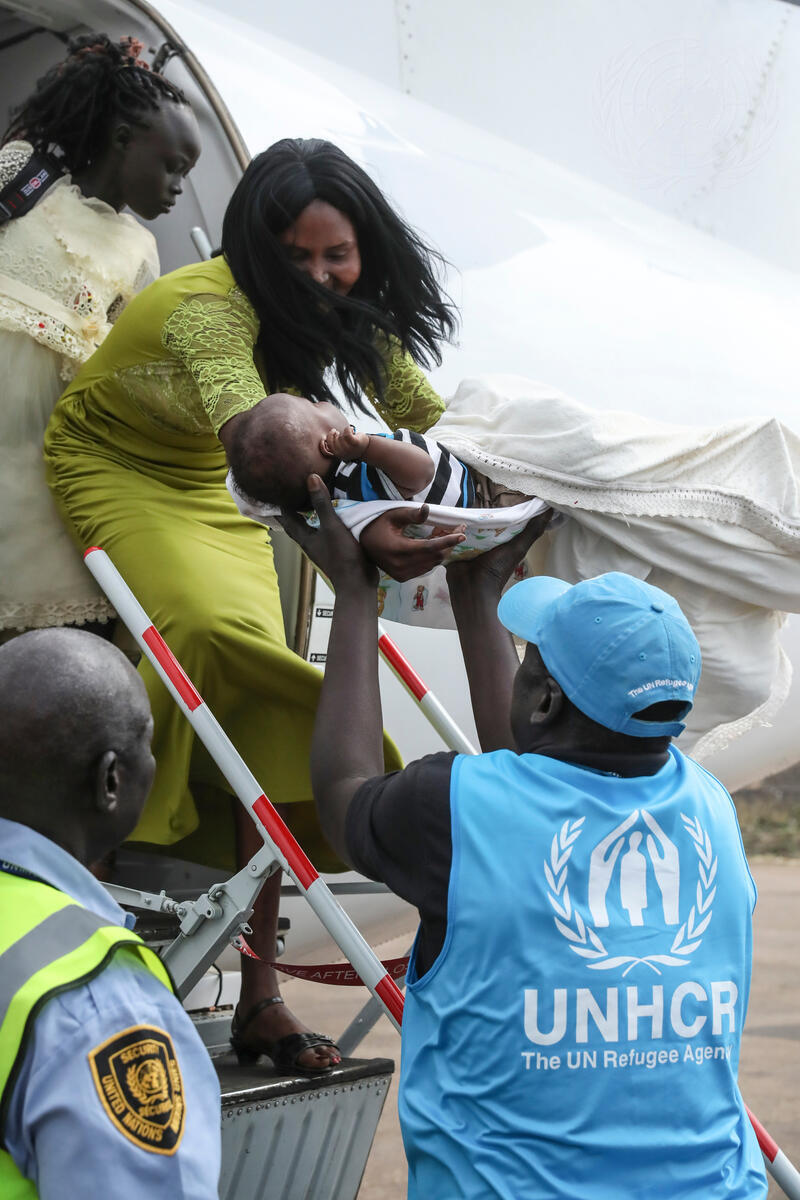
2021 UNHCR MUN Refugee Challenge

The forced displacement of people around the world due to conflict, human rights violations or other violence and persecution remains a massive global challenge, with the United Nations High Commissioner for Refugees (UNHCR) estimating that 82.4 million people were forcibly displaced from their homes as of the end of 2020, with nearly 26 percent of those displaced in Africa. In an effort to bring greater attention to the plight of displaced peoples and to work directly with students learning about the United Nations System, UNHCR has put forward the Model United Nations Refugee Challenge for 2021.
The Challenge allows Representatives and Model United Nations conferences to submit resolutions focused on a set of topical issue areas selected by UNHCR. Resolutions submitted for the Challenge are then reviewed by a jury of young refugee leaders and experts on refugee issues; winning submissions will be formally recognized in 2022 and shared with policymakers. In 2020, the inaugural year of the Challenge, over 20,000 students from 75 different nations participated. AMUN was proud to participate in the Challenge in 2020, and looks forward to doing so again this year,
While AMUN will not be simulating UNHCR directly, the General Assembly Third Committee will have the opportunity to explore two of the four key issue areas as part of its discussion on the topic “Assistance to refugees, returnees and displaced persons in Africa.” Representatives in GA3 are strongly encouraged to look into their state’s position on these issue areas through the lens of the topic before the Conference and to look forward to discussing these issues with their fellow Representatives. Despite the “Refugee Challenge” name, Representatives are also encouraged to consider all groups of displaced persons, including refugees who have permanently left their state of origin, refugees who seek to return to their homes, internally displaced persons who have been forced to leave their homes due to conflict but who remain in their state of origin and asylum seekers looking to find refuge in a new state,
The first issue area AMUN is focusing on this year is “Supporting the social inclusion of refugees.” Refugees and other displaced groups often struggle to be included in social institutions. This can stem from prejudice and xenophobia, tensions over use of limited resources and barriers such as language skills and education level. Exclusion from participation in economic systems, including limiting refugees’ ability to work legally and access financial services, or receipt of social services, such as healthcare and education, further isolates refugees. While some African states have worked to foster inclusion through progressive policy changes, socioeconomic challenges and consistent increases in the number of refugees threaten further progress. UNHCR has created programs that work directly with refugees, governments, NGOs and businesses to improve social inclusion by providing opportunities for refugees and by educating communities about harmful stereotypes and exclusive laws and practices. However, more work remains to support full social inclusion across all groups.
The second issue area AMUN is focusing on for this year’s Challenge is “Refugees and the impact of COVID-19.” Refugees face additional barriers to obtaining healthcare, including access to COVID-19 vaccinations.Only 10 percent of people in sub-Saharan Africa were vaccinated as of mid-November, with numbers likely far lower for refugees. Many states have also made it harder for refugees to receive vaccination than the general population despite appeals from UNHCR and the World Health Organization (WHO). The impacts of the COVID-19 pandemic also extend beyond healthcare, as the pandemic has exacerbated many of the existing issues that impact refugees, including economic participation and access to education. Many states also closed their borders to asylum seekers in violation of international law, stranding people fleeing difficult situations and, in some cases, leading to their forced return to their state of origin despite ongoing conflict or threat. UNHCR has taken steps to support refugees and other displaced persons dealing with the effect of COVID-19 and has participated in the broader Global Humanitarian Response Plan for COVID-19, with specific provisions for hygiene supplies, cash assistance and gender-based violence support for sub-Saharan Africa. However, recent data from Uganda, the largest refugee-hosting state in Africa, continue to show sharp reductions in food security, mental health, healthcare access and employment.
Keep Up With The Accords
More to read
The AMUN Accords is a premier resource for fact-based Model United Nations simulations. We are always looking for new contributors. Want to write for the AMUN Accords? Check out out the submission guidelines and then get in touch!




